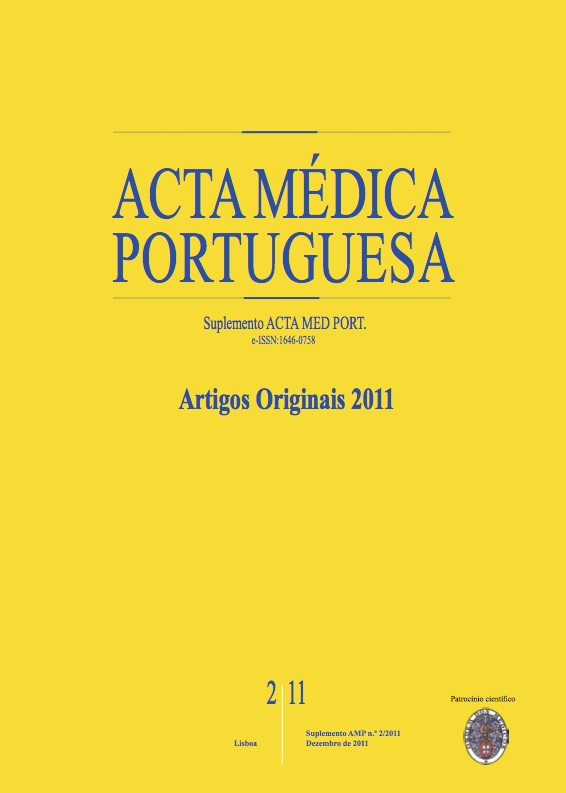O Paradoxo da Incapacidade das pessoas muito idosas.
DOI:
https://doi.org/10.20344/amp.1510Resumo
People aged 80 years and over are the segment of the population that grows faster, and it is expected that by the year 2050 this group will represent 3.4% of the total population of the world (UN, 2002). With advancing age, despite disability and age-related losses, some people succeed in evaluating their health more positively, especially when comparing with others. This paradox is one of the biggest contradictions in the literature that focus the very-old and suggests the existence of moderating influences in the relation between objective and subjective health.Analyze the dynamic of the relationship between objective health and physical health with advancing age.It was used a sample of 991 community-dwelling participants, 698 women (70.4%), with ages between 65 and 101 years (mean age 74.1, SD 6.5). The General Health Questionnaire and the Questionnaire on Health and Lifestyles were used for collecting data. Socio-demographic information was also collected.Comparative analyses showed significant differences in subjective, objective and mental health among age groups. The older group (n = 207) was more likely to have worse objective health, with greater levels of disability (ADL and IADL), more vision difficulties, and a better subjective health. Differences between age groups were more significant in the question about how they evaluate their health comparing with other people.Despite the impaired functional capacity and increased psychological distress, people with 80 and more years old don't have a worse physical health or a more pessimistic self-rated health, especially when comparing with others. These results show that older people seem to have capabilities that can be channeled and directed to provide their own health. Knowing the characteristics of this group, considered the "biological elite" of this generation, will help to identify measures to promote successful aging.Downloads
Downloads
Como Citar
Edição
Secção
Licença
Todos os artigos publicados na AMP são de acesso aberto e cumprem os requisitos das agências de financiamento ou instituições académicas. Relativamente à utilização por terceiros a AMP rege-se pelos termos da licença Creative Commons ‘Atribuição – Uso Não-Comercial – (CC-BY-NC)’.
É da responsabilidade do autor obter permissão para reproduzir figuras, tabelas, etc., de outras publicações. Após a aceitação de um artigo, os autores serão convidados a preencher uma “Declaração de Responsabilidade Autoral e Partilha de Direitos de Autor “(http://www.actamedicaportuguesa.com/info/AMP-NormasPublicacao.pdf) e a “Declaração de Potenciais Conflitos de Interesse” (http://www.icmje.org/conflicts-of-interest) do ICMJE. Será enviado um e-mail ao autor correspondente, confirmando a receção do manuscrito.
Após a publicação, os autores ficam autorizados a disponibilizar os seus artigos em repositórios das suas instituições de origem, desde que mencionem sempre onde foram publicados e de acordo com a licença Creative Commons









